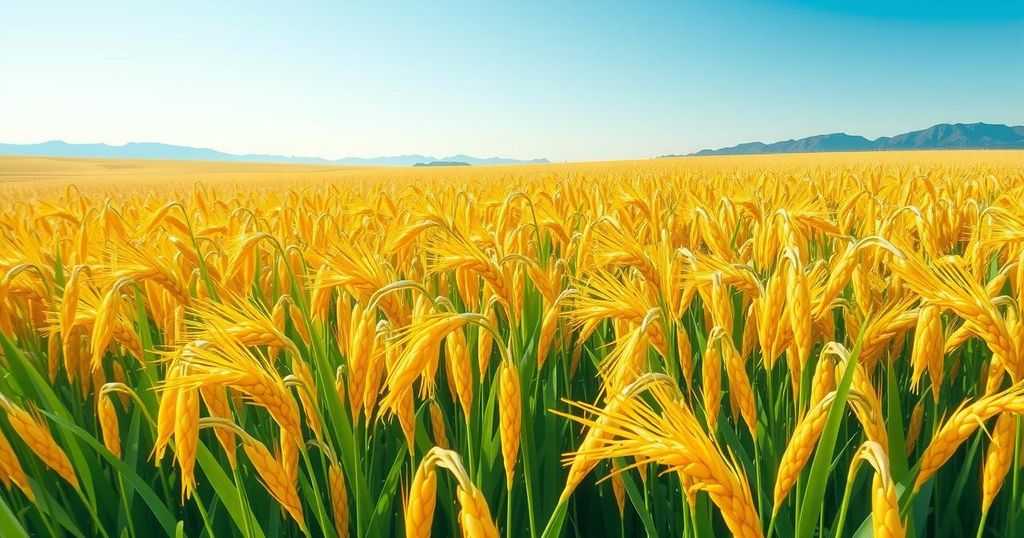Mozambique recorded a new high in rice imports in 2024, with expenditures reaching $441 million, up 38.8% from the previous year. This trend is linked to declining domestic agricultural production and heightened consumption. Statistical reports suggest substantial shortfalls in local crops, raising concerns over food security and economic reliance on imports, despite potential for improvement through government investment in the sector.
In 2024, Mozambique set a new record for rice imports, revealing a heightened dependence on foreign sources to satisfy basic food requirements. The Bank of Mozambique’s annual statistical report indicates that the nation expended $441 million on rice imports, a considerable 38.8% increase from $317.7 million in 2023. This surge is attributed to rising domestic consumption alongside a decline in local production due to structural and climatic challenges faced by the agricultural sector.
The National Institute of Statistics (INE) reported a 34% reduction in rice production for 2023, totaling only 161,800 tons. The INE data also shows declines in other food crops, with experts linking these downturns to adverse weather conditions such as floods and droughts, as well as a lack of investment in irrigation, high-quality seeds, and technical support. As a result, Mozambique has increasingly resorted to foreign imports to mitigate these deficits, which heightens its vulnerability to international food price fluctuations.
Maize production also experienced a decline in 2023, decreasing by 11% to 2.12 million tonnes, down from 2.38 million tonnes the previous year. This reduction is less alarming considering that 2022 had marked a peak in maize production, reflecting a nearly 30% increase from 2021. Conversely, rice production reached its lowest level in five years. Notably, both sorghum and millet production saw significant drops: sorghum fell by 15% to 139,553 tonnes, while millet decreased by 32% to 17,098 tonnes.
The combination of these agricultural challenges and record imports raises critical issues in Mozambique, where agriculture employs a majority of the population and constitutes over 20% of the GDP. Despite the worsening climatic conditions, there exists a potential for improved agricultural output if the government commits to systemic investments in this vital sector.
A report by the Inclusive Growth in Mozambique development programme highlighted various challenges the agricultural sector encounters. Furthermore, it asserts that substantial, long-term governmental investment in climatic adaptation and structural improvements could diminish reliance on costly imports. This could lead to increased income and employment opportunities, enhanced food security for millions of Mozambicans, and bolster the national economy.
The current state of Mozambique’s agricultural sector, marked by record rice imports and decreased local production, underscores the nation’s increasing reliance on foreign food supplies. The data indicates a need for government investment in agriculture to address structural and climatic challenges. By improving the agricultural framework, Mozambique could achieve greater food security and economic stability, thereby reducing vulnerability to international market fluctuations.
Original Source: macaonews.org






